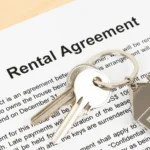Staying Ahead: Legal and Regulatory Changes in Property Management

Understanding legal and regulatory updates is crucial in dynamic property management, especially in Missouri. Avenue Residential Leasing and Management, serving Chesterfield, St. Louis, and more, emphasizes staying informed. This blog will discuss the necessity of keeping up with these changes for property management entities, highlighting how such knowledge affects operations, ensures compliance, and fosters success in a competitive environment.
How to Ensure Compliance with Regulatory Requirements?
For Missouri property management firms like Avenue Residential Leasing & Management, navigating legal changes demands a proactive stance. Compliance with local, state, and federal laws ensures top service for tenants and owners. Here’s how to stay aligned with industry regulations.
Stay Updated on Regulations
The first step in ensuring compliance is staying informed about the ever-changing regulatory environment. This involves:
- Subscribing to Industry Publications and Resources: Regularly reading industry-specific news and updates can provide early warnings about regulatory changes.
- Joining Professional Organizations: Organizations such as the National Association of Residential Property Managers (NARPM) offer resources, training, and networking opportunities that can keep you informed about regulatory changes.
- Attending Workshops and Seminars: Participating in educational events focused on property management and real estate law can provide insights into compliance requirements and best practices.
Implement Compliance Measures
Once you know the regulations, the next step is implementing measures to ensure compliance. This includes:
- Staff Training: Regular training sessions for your team can ensure everyone knows their compliance responsibilities. This can cover everything from fair housing laws to local property management ordinances.
- Legal Consultations: Working with legal experts specializing in real estate and property management law can help you navigate complex legal landscapes and implement necessary compliance measures.
- Adopting Technology Solutions: Utilizing updated property management software with the latest regulatory requirements can help streamline compliance efforts. These solutions can assist in maintaining records, managing leases, and ensuring that all processes are by the law.
Conduct Regular Audits and Reviews
Ensuring ongoing compliance requires regular audits and reviews of your practices. This involves:
- Internal Audits: Conducting internal audits can help identify any areas of non-compliance or potential risks before they become issues. This could involve reviewing lease agreements, maintenance records, and financial transactions.
- External Reviews: Engaging external auditors or consultants to review your compliance practices can provide an unbiased assessment of your operations. They can also offer valuable recommendations for improvement.
- Feedback Loops: Creating mechanisms for feedback from tenants, property owners, and staff can help identify compliance issues. This could include surveys, suggestion boxes, or regular meetings to discuss concerns and suggestions.
Regulatory Compliance Examples in Property Management
The property management industry in Missouri is dynamically changing due to legal and regulatory updates. These changes significantly influence how properties are leased, managed, and maintained. Managers must understand and adapt to these changes to maintain compliance and safeguard investments.
Recent Legal and Regulatory Changes
Recent updates to Missouri’s property management laws have redefined aspects of the landlord-tenant relationship, including adjustments to security deposit limits and clearer guidelines for returning these funds. Enhanced tenant screening laws now demand comprehensive background checks in line with the Fair Housing Act, promoting fairness and non-discrimination in leasing. Additionally, stricter maintenance and safety regulations emphasize landlords’ duty to maintain safe and habitable properties through regular inspections and upkeep.
Impact on Property Management
These regulatory changes impact various aspects of property management. The security deposit amendment requires a review and potential adjustment of lease agreements to ensure they comply with the new limits and procedures. The enhanced tenant screening laws require property managers to update their screening processes, ensuring they are thorough yet fair and compliant with anti-discrimination laws.
The updates to maintenance and safety regulations mean property managers must conduct more regular and detailed property inspections and maintain rigorous maintenance schedules to meet the higher standards of property upkeep and safety.
Adapting Policies and Procedures
Property managers should update leases, policies, and screening methods to comply with new Missouri regulations. Staff training on these updates is crucial. Implementing structured property inspections and maintenance schedules is necessary for safety standards. Staying informed on legal changes ensures ongoing compliance. Avenue Residential Leasing & Management commits to compliance and informed practices, aiding clients’ rental business success in Missouri. Our partnership offers expertise in property management laws, ensuring growth and a trustworthy environment for tenants.
Significance of Regulatory Compliance in Property Management
In the ever-evolving property management sector, adhering to legal and regulatory standards is crucial for survival and fostering a thriving, ethical, and sustainable property business.
Compliance with regulations is essential for operating within the law and protecting tenants and property owners. Non-compliance can lead to severe legal penalties, financial losses, and reputational damage, affecting client trust and tenant retention.
However, the advantages of compliance, such as operational efficiency, improved tenant relations, and a competitive edge, significantly outweigh the costs, making it a critical component for success in the property management industry.
Conclusion
Regulatory compliance is not just a legal obligation—it’s a critical component of a successful property management strategy. By prioritizing compliance, companies can avoid the pitfalls of non-compliance and unlock many benefits that contribute to long-term success. Whether through enhanced operational efficiency, improved tenant relations, or a stronger competitive position, the importance of regulatory compliance in the property management industry cannot be underestimated.






